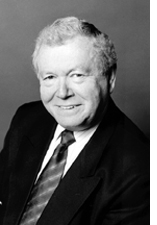By Rabbi Dow Marmur
 JERUSALEM — Israel is exciting for many reasons. One of them is that at any given moment and in the most unlikely situations you can find the worst and the best strangely coexisting. The Bialik-Rogozin School in south Tel Aviv is an example. Because of the Oscar two American film makers have just received for making a documentary about it, it has become world famous – and exposed a gaping wound in the country’s body politic.
JERUSALEM — Israel is exciting for many reasons. One of them is that at any given moment and in the most unlikely situations you can find the worst and the best strangely coexisting. The Bialik-Rogozin School in south Tel Aviv is an example. Because of the Oscar two American film makers have just received for making a documentary about it, it has become world famous – and exposed a gaping wound in the country’s body politic.
T
he school has over 800 students between Kindergarten and Grade 12 who come from 48 countries. They’re all children of non-Jewish immigrants, many of them illegal, and refugees, notably from Darfur, Eritrea and other African countries. It’s supported by the Tel Aviv municipality and the Israeli ministry of education. The only language of instruction is Hebrew. Some 78% of its students matriculate, which isn’t short of the national average. The school is a safe haven for the students from privation and hardship.
That’s the good news: a real tribute to Israel. The gaping wound is that about 120 of the students are among the 400 children of migrants currently facing deportation. The law allows for it and the minister of interior Eli Yishai, the leader of the ultra-Orthodox Shas party, is keen to implement it as soon as possible. Prime Minister Netanyahu has said that illegal immigration is a threat to the Zionist state because it reduces the proportion of Jews in the country and changes its demographic balance.
Most of the immigrants to be deported have nowhere else to go. Their children, especially the students at Bialik-Rogozin, would also become culturally and emotionally homeless since the school has given them the only stability, even identity, they’ve known. They speak Hebrew – many of them excel in the language – and wish to be integrated into Israeli society, including serving in the armed forces.
To inflict such pain is cruel under any circumstances. For Jews to do it is especially dramatic, for we’ve indeed been strangers in strange lands and suffered for it. The Torah repeatedly urges us to be kind to the stranger so that our experience can become a source of comfort and guidance to others. Though it’s understandable that Israel cannot open its gates to immigrants without endangering its indigenous population – and it’s indeed building a wall with the border of Egypt, now less stable than ever, to prevent a mass influx – but those who’re already here deserve special consideration.
The foreign workers issue is part of the broader problem of accepting people into Judaism whose status doesn’t conform to the rules of Jewish law as interpreted by the ultra-Orthodox. The whole thing smells of racism in the guise of fidelity to tradition.
It may be that President Shimon Peres thinks so, too. When the Oscar became known, he telephoned the principal of the school to congratulate her. He said that this is “a great human story. You have brought unexpected joy to Israel.”
Yossi Sarid, my favorite Ha’aretz columnist, quotes these words and adds: “Instead of his phone call to the school principal, Peres should have called Interior Minister Eli Yishai to tell him what he thinks of him and his plans for the detention facility.” Sarid is rightly worried that instead of being at school next year, the students will be forced to go underground to evade deportation.
Israel is, indeed, exciting. But my love of and commitment to it doesn’t prevent me from being worried about its fragile soul. I wish I knew what to do about it.
*
Rabbi Marmur is spiritual leader emeritus of Holy Blossom Temple in Toronto. He now divides his year between Canada and Israel. He may be contacted at dow.marmur@sdjewishworld.com